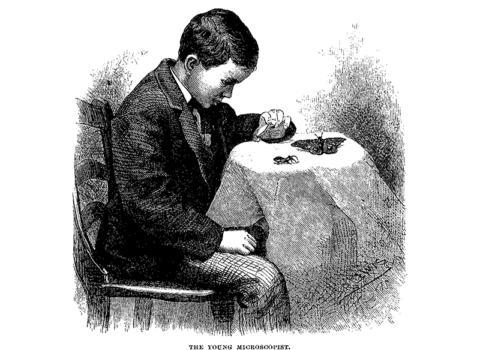Trump’s Trade Talk
Above all, NAFTA is an investment agreement, financial and political in nature, and it has always been considered as such by both Republicans and Democrats.
On the way to securing his party’s presidential nomination, Donald Trump indulged in a level of verbal violence so excessive that many seasoned Republicans, presumably repelled by their nominee, boycotted their own convention. The ultra-vulgar real-estate billionaire’s insults and racism are said to have inspired so much loathing that many donors and “respectable” personages identified with the Republican Party will either sit out this presidential campaign or, indeed, actively support Hillary Clinton.
Unfortunately, this analysis underestimates the cynicism of a great many American politicians, who would back practically anyone to achieve their ends. Trump has a real problem with his party, but it’s not personal, it’s trade-related. And what the Republican leadership chiefly loathes about Trump is his opposition to free-trade agreements, such as NAFTA (the North American Free Trade Agreement), the granting of PNTR (Permanent Normal Trade Relations) status to China, and the Trans-Pacific Partnership (TPP).
Nevertheless, without his war against free trade, Trump has no chance of winning against Clinton. The Democratic candidate is so closely linked with her husband’s efforts to pass NAFTA—without counting her own support for trade accords when she was secretary of state—that an entire generation of workers blames both Clintons for having sold their jobs to the cheap labor forces of Mexico and China. Each of those ex-factory workers is a potential vote for Trump, and his blue-collar supporters, for the most part, ignore his contradictions (“I am all for free trade, but it’s got to be fair”).
Unfortunately for the American working class, Trump’s talk about free trade mistakes the truth. There are, obviously, many free-trade elements in NAFTA, but it is above all an investment agreement, financial and political in nature, and it has always been considered as such by both Republicans and Democrats.
U.S. tariffs on products imported from Mexico were already very low in 1991—3.5% on American component parts exported to be assembled in Mexican maquiladoras and then re-exported to the United States—when the government of Mexican President Carlos Salinas initiated talks with George H.W. Bush’s administration. Before NAFTA came into force on January 1, 1994, there was nothing to stop an American company from crossing over to Mexico to take advantage of the cheap labor and weak environmental regulation there. At the same time, the advantages of investing in Mexico were offset by fears of political instability, never more in evidence than when President Lázaro Cárdenas nationalized the petroleum industry in 1938. Although Salinas conducted himself like a free-marketeer, there were still good reasons for American businessmen to remain distrustful. What if the left returned to power? And what about corruption?
The key provisions of NAFTA are in Chapter 11, which was formulated in order to provide protection against threats of expropriation and to guarantee that American corporations would receive payments in “G7 currencies” (and not, if possible, in pesos). With this legal guarantee, it was hoped that the steadier influx of dollars would “civilize” the Mexicans and stabilize their political system as well as their currency.
Trump apparently doesn’t understand that the granting of Permanent Normal Trade Relations status, like the “normalization” accord with China pushed by Bill Clinton and adopted by Congress in 2000, is not a free-trade agreement. Like NAFTA, PNTR was sold as a means of increasing American exports, whereas it was, in fact, a preliminary step to China’s entrance into the World Trade Organization. Chinese membership in the WTO is in itself a kind of insurance policy for foreign investors in the People’s Republic. After all, China is officially communist, which from the American point of view is even worse than being Mexican. While the WTO still doesn’t have strict regulations such as those contained in NAFTA, membership in the WTO at least implies that a country is committed to following the rules of the world trade order. It’s not surprising that on the day after the passage of PNTR by the House of Representatives, the Wall Street Journal reported that “the China investment rush is on.” Joseph Quinlan of Morgan Stanley declared, “This deal is about investment, not exports. U.S. foreign investment is about to overtake U.S. exports as the primary means by which U.S. companies deliver goods to China.”
For Trump’s contemptuous opponents in the Republican Party, the “free-trade” agreements represent enormous business opportunities. As a result, many Republican contributions are going to flow to Hillary Clinton, who—in spite of her opportunistic about-face on the Trans-Pacific Partnership, which she now opposes—is seen as the best bet for the party of high finance.



